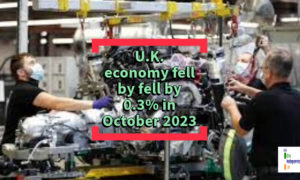
England has warned that inflation might reach 10% in the last 3 months of 2022, due to rising prices of fuel and food
With prices rising by 9% a year in the United Kingdom (U.K.) and hitting the 40-year record high, the Bank of England has warned that inflation might reach 10% in the last 3 months of 2022, due to rising prices of fuel and food.
These rising prices are putting pressure on household budgets of Britons. Energy Bills are the biggest contributor of this inflation, largely because of the rising prices of oil and gas due to Russia’s invasion of Ukraine. After a rise in the U.K.’s energy price cap last month, average gas and electricity prices jumped by 53.5% and 95.5% respectively compared to a year ago.
The average petrol price rose to 161.8 Pence (P) per litre in April 2022 as compared to 125.5 P in a year ago. The costs of raw materials, household goods, furniture and restaurants and hotels are also increasing.
The Governor of the Bank of England said that rising global food prices are a major worry and shopping bills are increasing. The Value Added Tax (VAT) has also gone up for some businesses. The Government restored the VAT to 20% in April 2022 for hospitality and tourism firms, which was earlier reduced due to Coronavirus (COVID-19). The cost of postage, water bills, air passenger duty and vehicle excise duty rates have also increased.
The increased interest rates have made mortgage payments more expensive for some homeowners. The Consumer Prices Index including owner occupiers’ Housing costs (CPIH) rose by 7.8% in the 12 months to April 2022, up from 6.2% in March 2022. The largest upward contributions to the annual CPIH inflation rate in April 2022 came from housing and household services (2.76%, principally from electricity, gas and other fuels, and owner occupiers’ housing costs) and transport (1.47%, principally from motor fuels and second-hand cars).
Taking it to twitter, the Office of National Statistics (ONS) tweeted,
The Consumer Prices Index including owner occupiers’ housing costs grew 7.8% in the year to April 2022.
— Office for National Statistics (ONS) (@ONS) May 18, 2022
This is up from the 6.2% growth in the year to March 2022 https://t.co/nLz4yAJDYK
The average pay increases aren’t keeping pace with inflation. As per ONS, the wages, excluding bonuses, rose by 4.2% between January and March 2022. But when you take inflation into account, regular pay actually fell by 1.2% compared to 12 months ago.
Because of Brexit, some industries facing staff shortages increased the staff pay. As of April 1, 2022, the lowest-paid saw the National Living Wage rise by 6.6% to £ 9.50 an hour. However, since that date, anyone earning more than £ 9,880 per year (£ 12,570 from July) has had to pay 1.25 P more in the pound in National Insurance contributions as a result of the new Health and Social Care Levy.
The Bank of England has faced criticism for not doing enough to control inflation. The Bank of England’s traditional response to rising inflation is to raise interest rates. This can benefit savers, but means some people with mortgages see their monthly payments go up.
The idea is that when borrowing is more expensive, people will have less money to spend. As a result, they will buy fewer things and prices will stop rising as fast. But when inflation is caused by external forces, such as rising global energy prices, then there is a limit as to how much inflation can rising interest rates curb.







